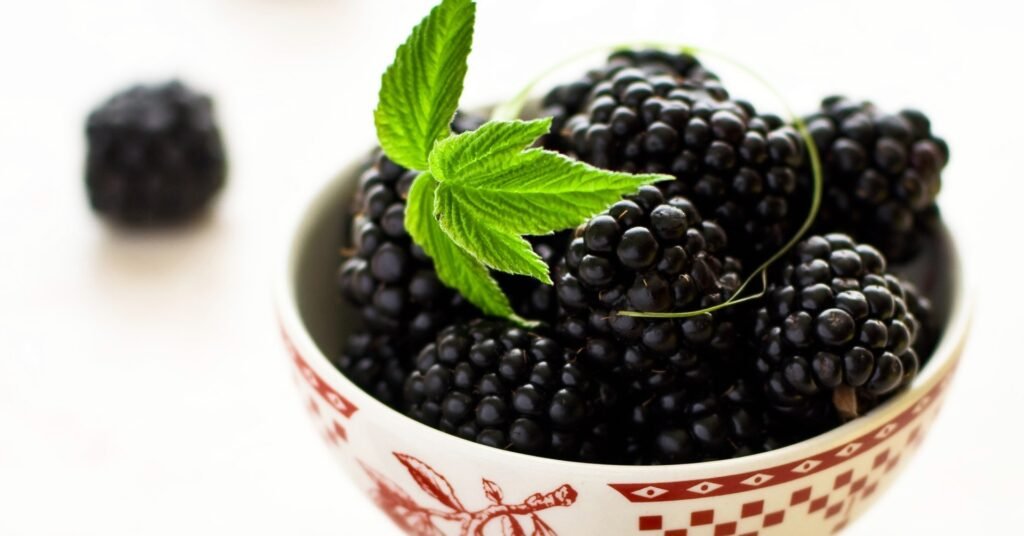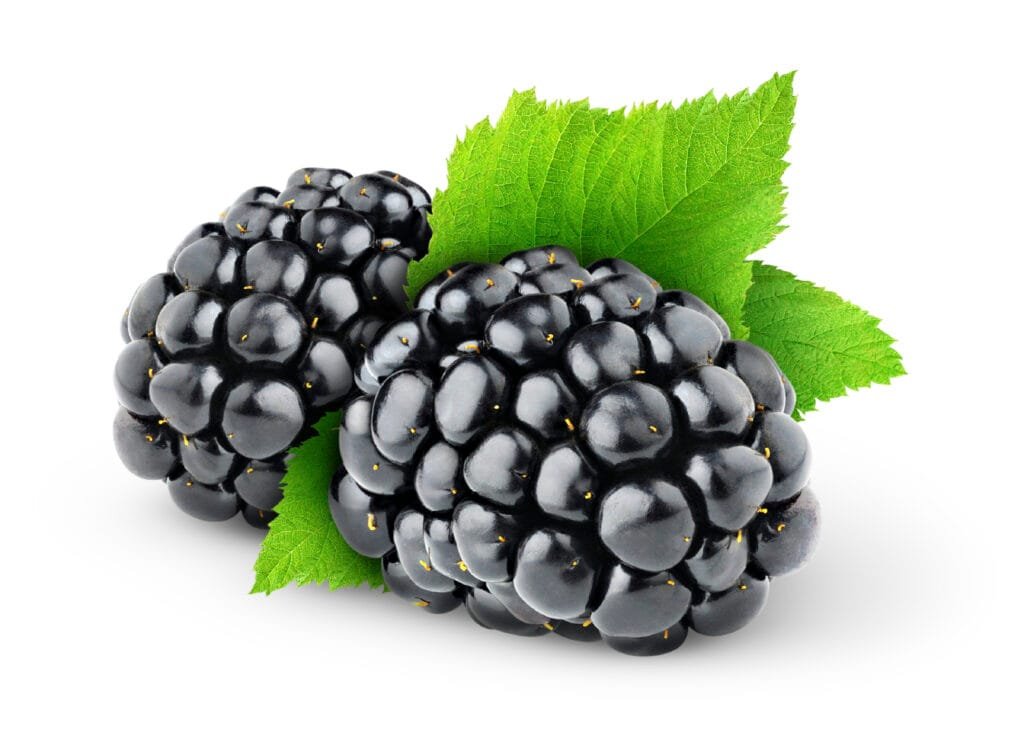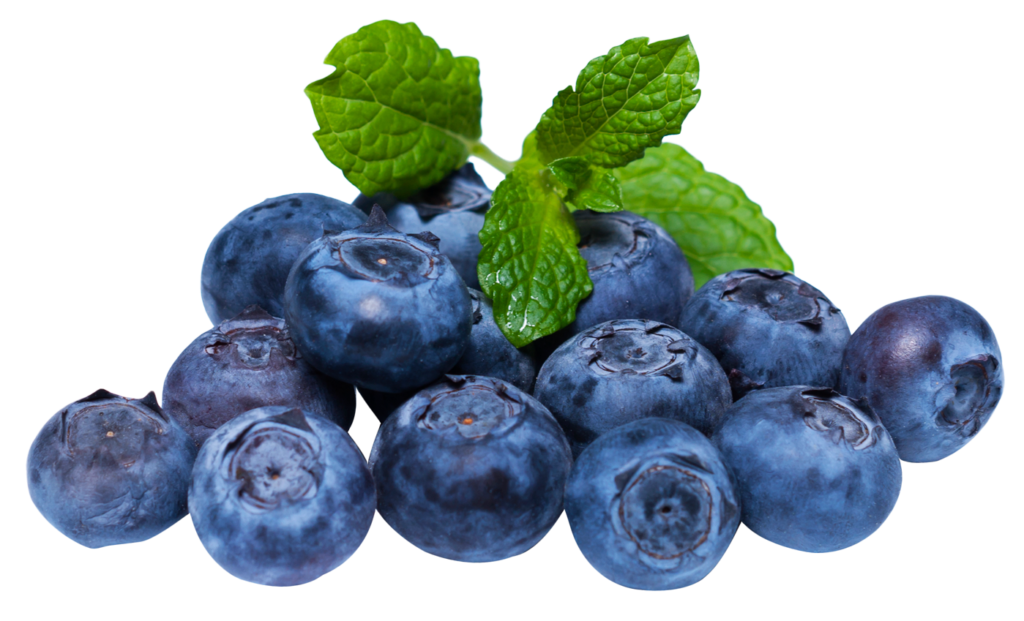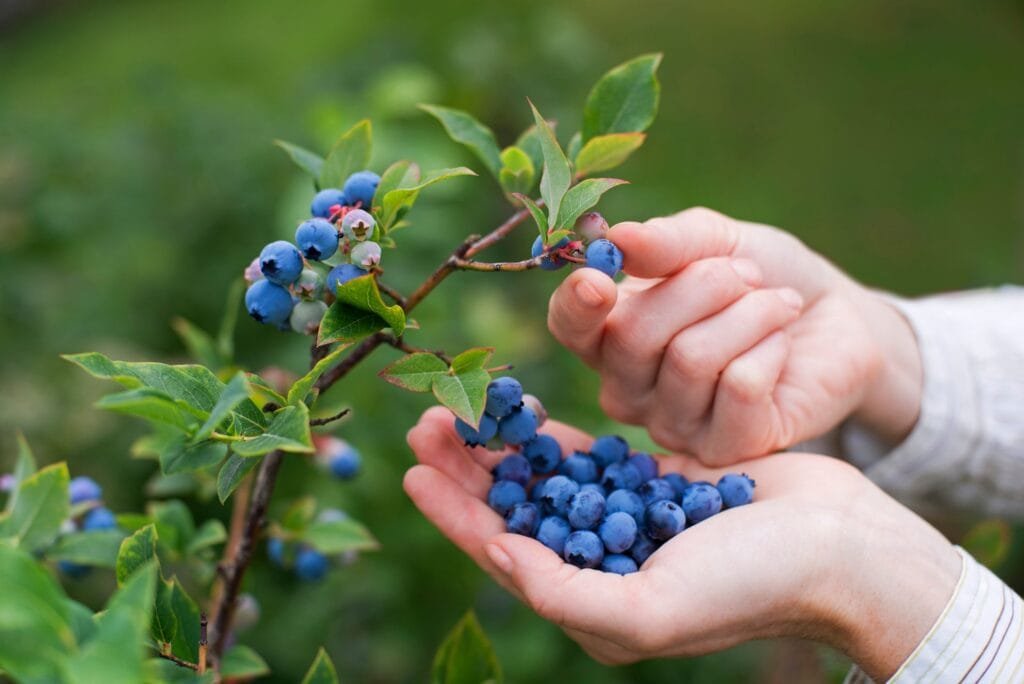Natural Remedies and Diabetes
Diabetes is a growing chronic disease, and the number of people with it continues to rise worldwide. The main feature of diabetes is high blood sugar levels, which can lead to serious complications like heart disease and nerve damage. While medication is the main way to manage diabetes, many people are also looking for natural treatments to go along with traditional methods. In recent years, blackberry leaves and blueberries have gained attention for their rich plant chemicals and potential to lower blood sugar. These natural resources, which are common but often overlooked, support diabetes management in unique ways. This article will explore the scientific evidence, mechanisms, and practical use of blackberry leaves and blueberries to help people better understand how these natural ingredients can improve health.
The Nutritional Value of Blackberry Leaves and Diabetes Management

Main components of blackberry leaves:
Blackberry leaves are rich in polyphenols, flavonoids, and tannins, which give them strong antioxidant and anti-inflammatory properties. Polyphenols have the ability to neutralize free radicals and help protect insulin-producing cells from oxidative damage. Flavonoids improve insulin secretion and increase the sensitivity of cells to insulin, supporting the balance of sugar metabolism.
Potential benefits:
- Antioxidant effects: Reduces insulin resistance caused by oxidative stress.
- Anti-inflammatory properties: Helps improve pancreatic health and protect insulin function.
- Blood sugar regulation: Tannins can inhibit some digestive enzymes, slowing the breakdown of carbohydrates and lowering post-meal blood sugar levels.
Scientific studies of blackberry leaves:
Early research suggests blackberry leaf extract may help regulate blood sugar. Some animal studies show that drinking blackberry leaf tea regularly can improve glucose tolerance and insulin sensitivity. While more clinical studies are needed to confirm these results, its potential as a supplementary treatment is promising.

The Role of Blueberries in a Diabetes Diet

Nutritional components of blueberries
Blueberries are a low glycemic index (GI) fruit, providing high-quality fiber, anthocyanins, and polyphenols in each serving.
- Dietary fiber: Promotes gut health and slows glucose absorption.
- Anthocyanins: These powerful antioxidants give blueberries their deep blue color and have a significant effect on insulin sensitivity.
- Polyphenols: Help regulate sugar metabolism and reduce inflammation.
Scientific evidence of bluebberries
One study showed that blueberries can increase insulin sensitivity, which is especially helpful for people with insulin resistance. The antioxidants in blueberries can also lower levels of HbA1c (a marker for long-term blood sugar control). Long-term studies have found that eating blueberries is linked to a lower risk of type 2 diabetes and also benefits heart health.

Importance of low GI
As a low GI fruit, blueberries release glucose slowly after meals, avoiding sharp spikes in blood sugar. This feature makes them a safe fruit choice for people with diabetes.
The Synergistic Effect of Blackberry Leaves and Blueberries
Blackberry leaves and blueberries are both rich in complementary active compounds, which can work together to enhance diabetes management.
- Synergistic polyphenols: Both contain high levels of polyphenols, which help reduce oxidative stress.
- Flavonoid advantages: Blackberry leaves contain flavonoids that improve insulin secretion, while the anthocyanins in blueberries enhance insulin sensitivity. Together, they support balanced sugar metabolism.
Adding both blackberry leaf tea and blueberries to your diet can maximize health benefits. For example, having blueberry oatmeal for breakfast along with a cup of blackberry leaf tea can create a combined antioxidant and blood sugar-regulating effect.
Dietary Tips and Usage
Blackberry leaves: Drink 1-2 cups of blackberry leaf tea daily, or use the extract as a dietary supplement. Blueberries: Aim for 1/2 cup of blueberries daily, either as a snack or added to breakfast. Easy pairings, like blueberry yogurt with blackberry leaf tea, make it simple to include these foods in your daily meals.
Practical Applications: Diabetes-Friendly Recipes and Combinations
Blackberry leaf tea:
- Ingredients: 1-2 teaspoons of dried blackberry leaves, 250 ml hot water.
- Method: Place blackberry leaves in a teapot, pour in hot water, and steep for 5-7 minutes before drinking.
Blueberry oatmeal:
- Ingredients: 1/2 cup blueberries, 1 cup oats, unsweetened milk or plant-based milk.
- Method: Cook the oats, then stir in the blueberries.
Healthy snack:
Mix blueberries, unsalted nuts, and a small amount of blackberry leaf powder for a portable snack.
Frequently Asked Questions (FAQs)
Q: How do blackberry leaves help lower blood sugar?
A: Blackberry leaves contain tannins that inhibit digestive enzymes, slowing glucose absorption, while flavonoids improve insulin secretion.
Q: Are blueberries safe for people with diabetes?
A: Yes, blueberries are a low GI fruit, which helps stabilize blood sugar levels. They are also rich in antioxidants, which help improve insulin sensitivity.
Q: Can I eat blueberries every day?
A: Yes, it’s recommended to eat 1/2 cup of blueberries daily, as it helps maintain stable blood sugar.
Q: Can blackberry leaf extract interfere with medications?
A: Blackberry leaves may enhance the effect of blood sugar-lowering medications. Always consult a doctor before using them to avoid low blood sugar.
Risks and Precautions
Blackberry leaves: Eating too much can cause stomach discomfort.
Blueberries: Some people may be allergic to blueberries, so be careful when trying them for the first time.
Additional Benefits: Heart Health and Anti-Inflammatory Effects
Blackberry leaves: Their anti-inflammatory properties can reduce inflammation markers and promote blood vessel health.
Blueberries: Studies show that blueberries can help improve cholesterol levels and reduce the risk of heart disease. These benefits make both foods great choices for people with diabetes who want to improve their overall health.
Blackberry leaves and blueberries show significant potential in managing diabetes. When used correctly with scientific methods, they can help improve blood sugar control and overall health. It’s recommended to include these foods in your daily diet under professional guidance for the best results.
